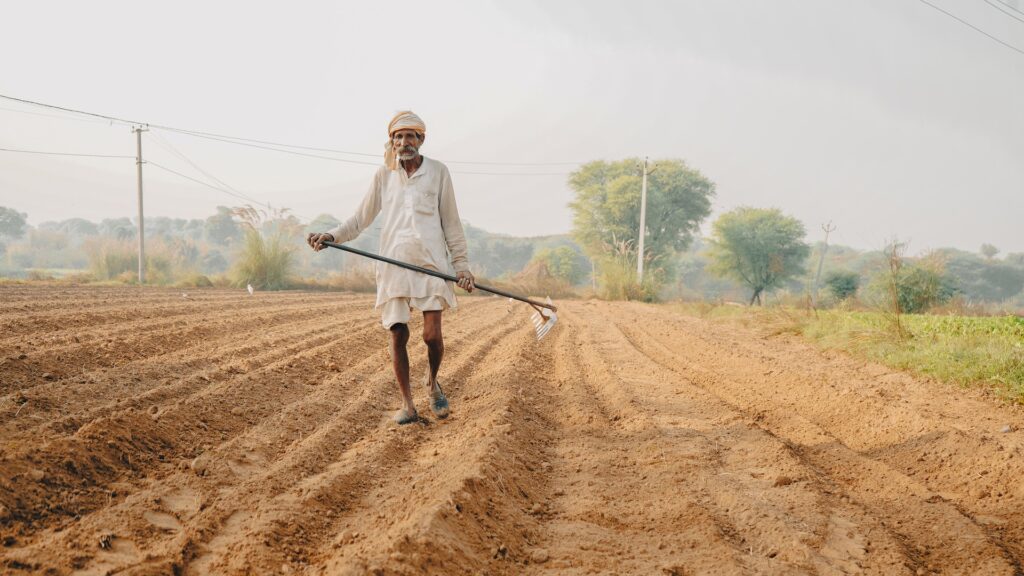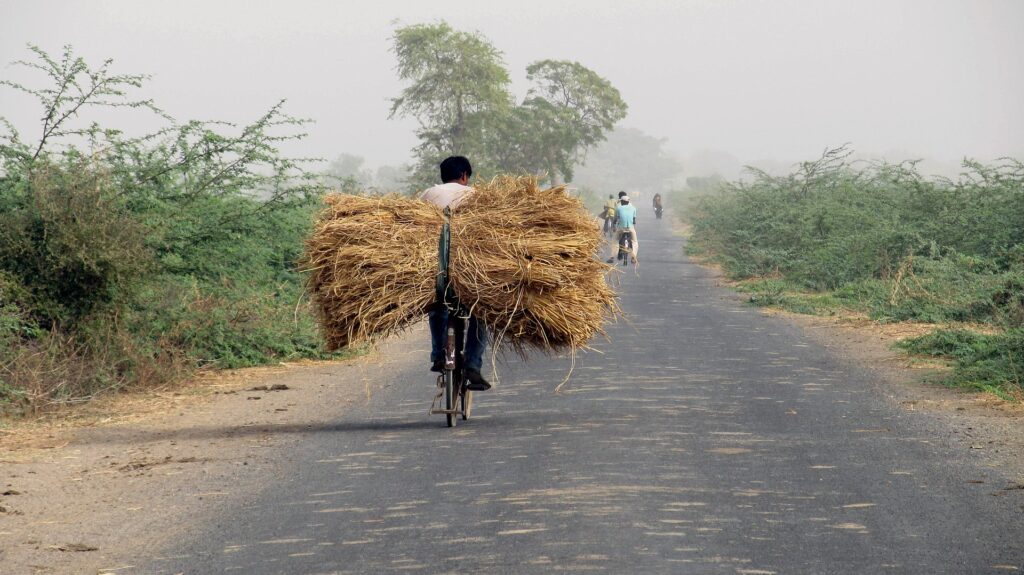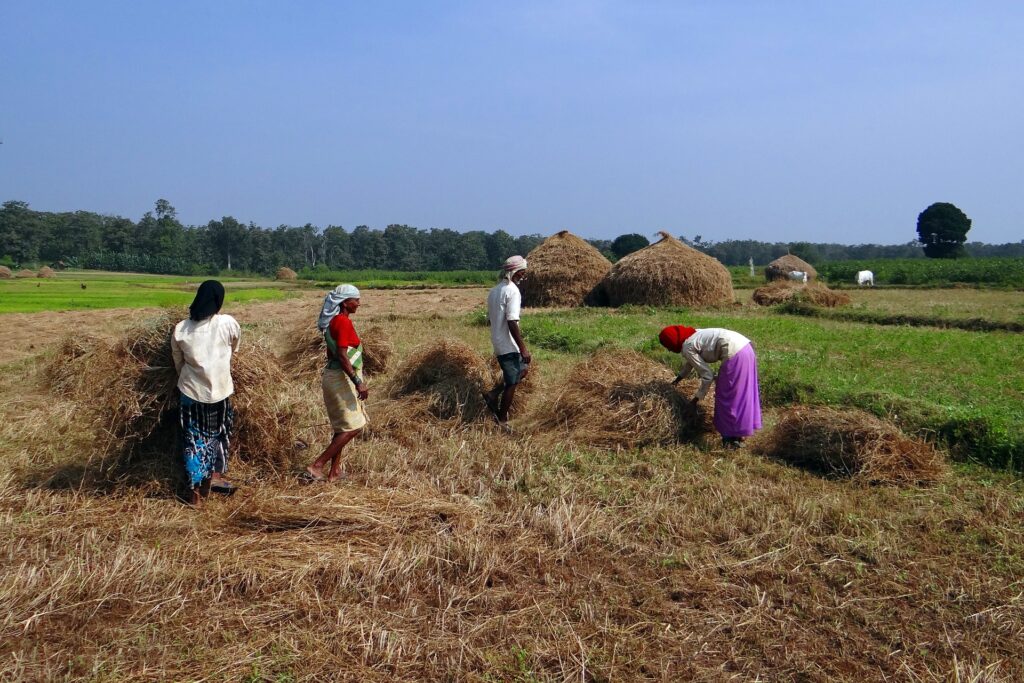Innovation in agriculture is transforming the Indian agricultural landscape by introducing advanced technologies, sustainable practices, and modern management techniques. As a country where agriculture is the primary source of livelihood for nearly 58% of the population, innovation is crucial for improving productivity, addressing challenges like climate change and resource constraints, and ensuring food security for a growing population.
India’s agricultural sector faces several long-standing issues, including fragmented landholdings, over-reliance on monsoons, and outdated farming practices. However, with the adoption of new technologies and innovative practices, Indian farmers are gradually overcoming these challenges. In this article, we explore the major innovations shaping agriculture in India, their benefits, and the challenges that still remain.

The Importance of Innovation in Agriculture
Agricultural innovation refers to the introduction of new methods, ideas, tools, and techniques aimed at improving the productivity, sustainability, and profitability of farming. These innovations can range from the adoption of modern farming equipment and precision agriculture technologies to new crop varieties and better market access through digital platforms.
The importance of innovation in Indian agriculture cannot be overstated. As the country’s population continues to grow, there is an increasing demand for food, which needs to be met sustainably. At the same time, farmers face resource constraints, such as shrinking landholdings, depleting water resources, and the effects of climate change. Innovation helps address these challenges by:
Increasing agricultural productivity: New technologies and methods enable farmers to produce more with fewer resources, ensuring higher yields and better quality crops.
Sustainable farming practices: Innovations in sustainable agriculture reduce the environmental impact of farming by conserving water, improving soil health, and promoting eco-friendly inputs.
Enhancing farmer income: By reducing input costs, improving yields, and providing better market access, innovation helps farmers increase their profitability.
Building resilience to climate change: Innovations such as climate-smart agriculture and drought-resistant crop varieties help farmers adapt to changing weather patterns and unpredictable climate conditions.
Key Innovations Transforming Agriculture in India

Precision Agriculture
Precision agriculture is a farming management concept that uses modern technology to monitor and optimize field conditions, allowing for precise application of inputs such as water, fertilizers, and pesticides. Technologies like GPS, remote sensing, drones, and IoT (Internet of Things) devices provide real-time data to farmers, enabling them to make data-driven decisions.
For example, soil sensors can monitor moisture levels, guiding farmers on when and how much to irrigate, thus reducing water wastage. Similarly, drones equipped with imaging technology can detect crop health issues and nutrient deficiencies, helping farmers apply the right amount of fertilizers only where needed.
Benefits of precision agriculture include:
- Increased efficiency in resource use (water, fertilizers, and pesticides).
- Reduction in input costs and environmental impact.
- Improved crop yields and quality.
- Early detection of crop diseases and pests.
Genetically Modified (GM) Crops
Genetically Modified (GM) crops have been a significant innovation in Indian agriculture. These crops are engineered to have specific traits such as pest resistance, herbicide tolerance, and improved nutritional content. The most notable example in India is Bt cotton, which has been widely adopted by Indian farmers due to its resistance to certain pests, leading to higher yields and reduced pesticide use.
Although the adoption of GM food crops in India is still under debate, research into developing drought-resistant and pest-tolerant varieties of staple crops like rice and wheat continues. These crops have the potential to improve productivity and reduce the risk of crop failure due to pests or adverse weather conditions.

Organic Farming and Sustainable Agriculture
Organic farming is gaining popularity in India as consumers become more conscious of the environmental and health impacts of chemical-intensive agriculture. Organic farming relies on natural inputs such as compost, green manure, and biological pest control, which improve soil health and reduce the environmental footprint of farming.
Innovation in organic farming includes the development of bio-fertilizers, bio-pesticides, and organic certification processes. The Indian government has also launched initiatives like the Paramparagat Krishi Vikas Yojana (PKVY) to promote organic farming practices and support farmers transitioning to organic methods.

Agri-Tech Startups and Digital Platforms
India has seen a surge in agri-tech startups that are leveraging technology to address various challenges faced by farmers. These startups provide digital solutions for everything from farm management and crop advisory services to supply chain optimization and market access.
Some of the notable innovations by agri-tech startups include:
Farm management apps: These apps provide farmers with real-time weather updates, crop advisory, and recommendations on pest control, fertilizer use, and irrigation schedules.
E-marketplaces: Digital platforms connect farmers directly with buyers, eliminating middlemen and enabling farmers to get better prices for their produce.
Blockchain for traceability: Blockchain technology is being used to ensure transparency and traceability in the supply chain, especially for organic and premium products, providing consumers with information about the origin and quality of agricultural products.
Examples of successful agri-tech startups in India include Ninjacart, which connects farmers with retailers and restaurants, and DeHaat, which provides end-to-end agricultural services to farmers, including inputs, advisory, and market linkages.

Hydroponics and Vertical Farming
Hydroponics is a method of growing plants without soil, using nutrient-rich water solutions instead. Vertical farming involves growing crops in stacked layers, making efficient use of space, especially in urban areas. Both hydroponics and vertical farming offer solutions to the challenges of limited arable land and water scarcity.
In India, hydroponics and vertical farming are being adopted by urban farmers and entrepreneurs who are growing high-value crops such as lettuce, herbs, and strawberries in controlled environments. These innovative farming techniques use less water and space, making them ideal for cities and regions with limited agricultural land.
Solar-Powered Irrigation Systems
Solar-powered irrigation is an innovative solution that addresses the twin challenges of energy access and water scarcity in agriculture. Solar-powered pumps allow farmers to draw water from wells or rivers for irrigation without relying on expensive diesel or unreliable electricity.
In India, the government has introduced schemes like the PM-KUSUM (Pradhan Mantri Kisan Urja Suraksha evam Utthaan Mahabhiyan) to promote solar-powered irrigation and reduce the carbon footprint of agricultural practices.

Government Initiatives Supporting Agricultural Innovation
The Indian government has been proactive in promoting innovation in agriculture through various policies and initiatives. Some of the key programs include:
National Mission on Sustainable Agriculture (NMSA): This mission promotes sustainable agriculture practices, including climate-resilient technologies, water management, and organic farming.
Pradhan Mantri Fasal Bima Yojana (PMFBY): This crop insurance scheme helps farmers manage risks associated with crop failure due to weather uncertainties, pests, and diseases.
Rashtriya Krishi Vikas Yojana (RKVY): RKVY supports the development of agri-business ventures, agri-tech startups, and innovations in farming practices.
Agri-Export Policy: The government’s Agri-Export Policy aims to increase agricultural exports, promote value-added products, and improve the global competitiveness of Indian agriculture.

Challenges to Agricultural Innovation in India
While innovation holds great potential, several challenges hinder its widespread adoption in Indian agriculture:
Lack of Awareness: Many small and marginal farmers lack awareness of modern farming technologies and innovative practices, limiting their adoption.
Infrastructure Deficit: Inadequate rural infrastructure, including poor road connectivity, lack of cold storage, and limited access to electricity, hampers the effective implementation of agricultural innovations.
Access to Finance: Smallholder farmers often face challenges in accessing credit and financing to invest in innovative technologies and equipment.
Policy and Regulatory Barriers: The adoption of certain innovations, such as GM crops, has been slowed down due to regulatory hurdles and public concerns.
Climate Change: While innovation can help mitigate the effects of climate change, unpredictable weather patterns and extreme events remain significant challenges for Indian farmers.

Conclusion
Innovation is the key to transforming Indian agriculture and ensuring its sustainability, productivity, and profitability in the future. From precision farming and organic agriculture to digital platforms and solar-powered irrigation, technological advancements are helping farmers overcome challenges and meet the growing demand for food.
While the government’s initiatives and the rise of agri-tech startups are driving progress, addressing challenges such as infrastructure deficits, access to finance, and regulatory issues will be essential to fully realize the potential of agricultural innovation in India. With the right support and investment, innovation can lead to a more prosperous and resilient agricultural sector that benefits farmers, consumers, and the environment alike.